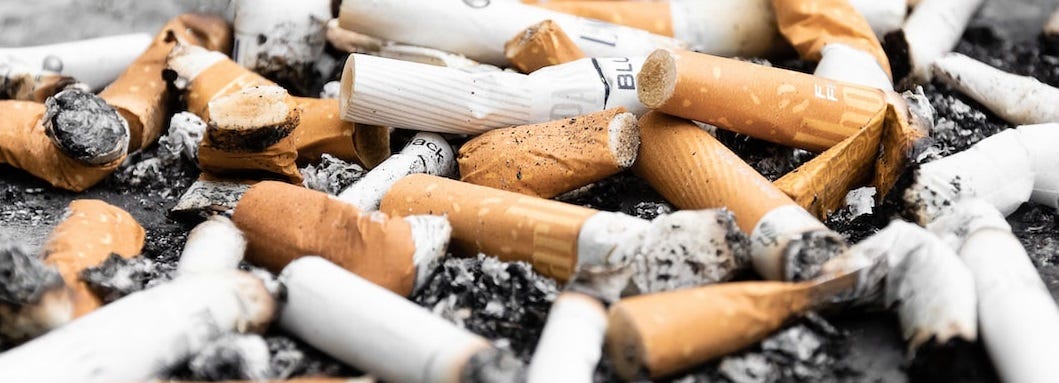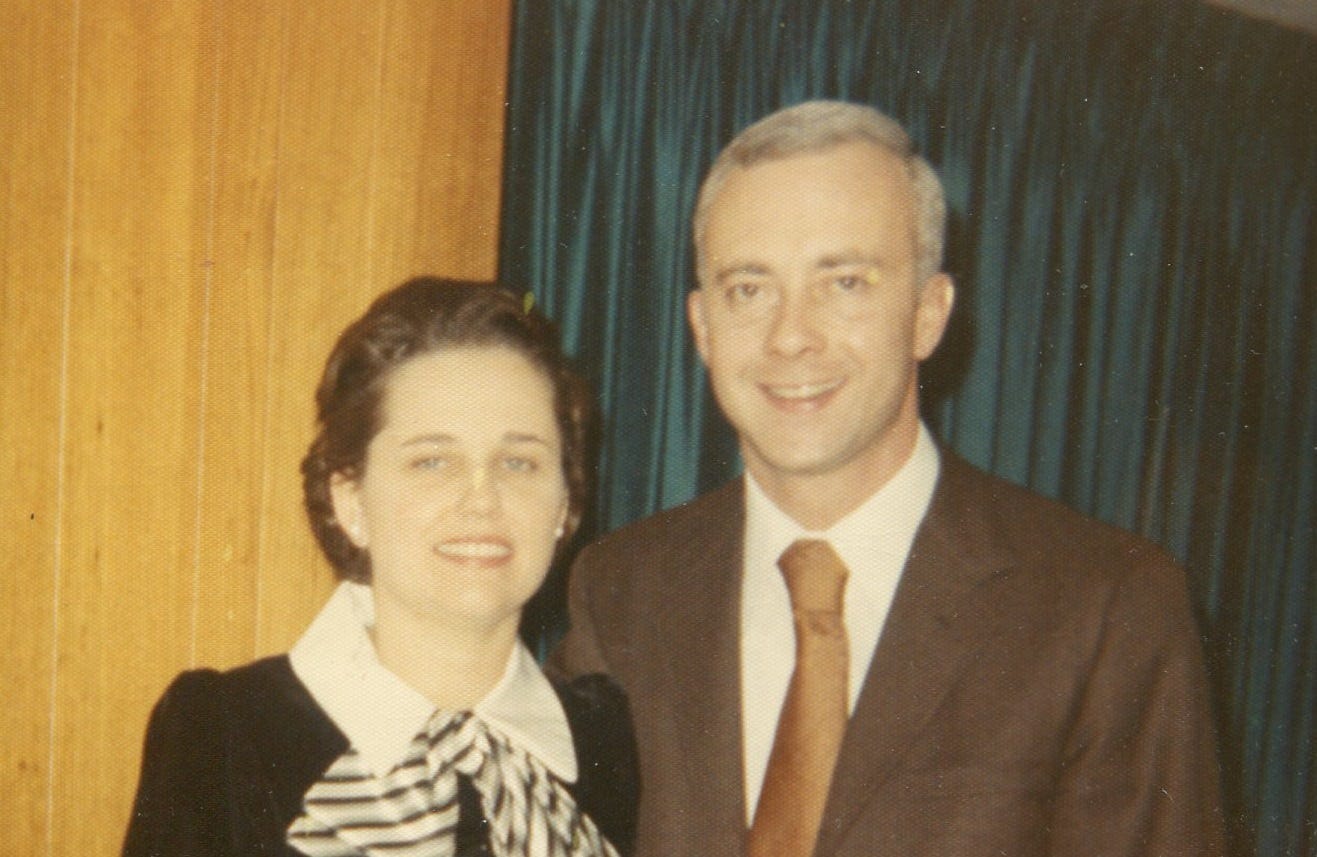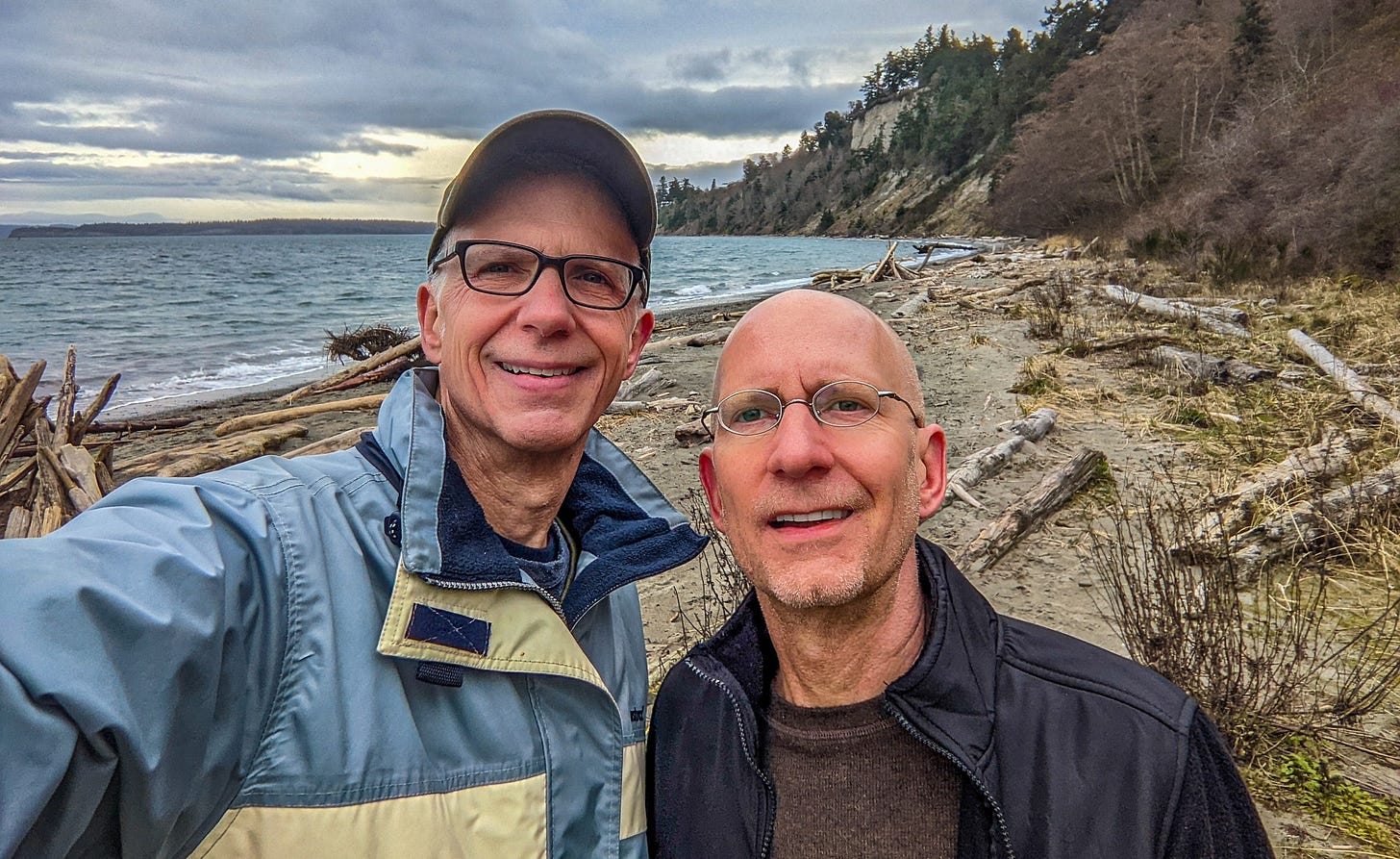A Letter to My Young European Friends Who Smoke
It's absolutely none of my business if you smoke. But I'm still offering some words of advice.
For the audio version of this article, read by the author, go here.

Cigarettes killed both my parents. They were chain-smokers, and they died tragic, miserable, early-ish deaths.
This has sometimes made Brent’s and my travels throughout Europe a bit difficult. It’s not just that more people smoke here than in America; it’s that smoking is so much more accepted.
Back in America, decades of education campaigns have made smoking unpopular, at least among the professional classes.
But in most of Europe, it’s generally still “cool” to smoke.
Brent and I spent most of this year traveling around the Balkans, living for months at a time in Croatia, Greece, Bosnia and Herzegovina, Serbia, and North Macedonia.
And while Europe has more smokers than America, the Balkans have even more smokers than the rest of Europe. (And, of course, they also have some of the world’s highest rates of lung cancer.)
As we’ve traveled, I’ve gotten to know a number of these smokers very well, including some young people.
It always breaks my heart a little.
And sometimes, even though it’s absolutely none of my business, I’ve ended up telling these friends what I think about their habit — as gently and as tactfully as I know how.
Here’s an email I wrote to one young French friend I’ll call Luc.
Hi Luc:
Just wanted to say how much I enjoyed getting to know you over the past several weeks. Sometimes I look at the world — the way we are trashing the planet, the income inequality, the wars — and I worry there isn't much of a future.
Then I meet a young person like you, who is so smart and passionate, and it truly restores my faith in the future.
Speaking of which, because I do like you and think you are a great guy with a great future, I'm now going to be rather annoying and give you some advice which you didn't ask for.
Sorry about that!
Here goes: I think you should try to quit smoking.

Both of my parents were lifelong smokers. And each died much younger than they should have. They started smoking when they were 18 and 19, and as I grew up, they tried to quit many times.
But it was too much for them. The longer you smoke, the harder it is to quit. Which is exactly why the cigarette companies work so hard to get young people like yourself to start smoking.
Here is how my parents died.
My mother went to a parking garage for a smoking break where she suffered a massive coronary brought on by decades of smoking. She was completely alone, and when her heart stopped, she fell straight forward onto her face, splitting her lips and breaking her teeth and nose.
Her heart wasn’t beating for several minutes — technically, she was dead — but paramedics revived her. Unfortunately, she was brain-dead by then, and two days later, it fell to me to have her life support removed. That wasn’t a fun decision to make. And it was even less fun to stand there and watch her die.
She was only sixty-two.
The same thing happened a few years later with my father, except he died from something called chronic obstructive pulmonary disorder. Basically, his lungs were so badly damaged, they couldn’t provide enough oxygen to keep him alive. So for twenty-four hours, my brother and I sat with him in the hospital, watching him slowly suffocate to death. It looked like an equally miserable way to die.
He was seventy-one.
Brent’s dad, who never smoked, is still alive and kicking at age ninety-three.
But my parents’ final days weren’t even the worst of it.
In the years before my mom died, she would get winded walking a single block. She was only a few years older than I am now, but she could barely climb a set of steps. I was shocked by how slowly she had to move and how often she had to sit down to rest — how incredibly limited her life had become.
My dad spent the last few years of his life carrying around an oxygen tank with tubes jammed up his nose. Even then, he continued to smoke — despite how dangerous it is to smoke with an oxygen tank. Doctors pleaded with him to stop, and he almost got tossed out of several retirement homes for smoking while on oxygen.
At that point, it was simply impossible for him to quit.
Oh, and my parents both died completely broke — they had no retirement savings — in large part because of the tens of thousands of dollars they spent on cigarettes. After my mom died, my father quickly lost the house to foreclosure. A few years later, he was evicted from even his very cheap apartment. Despite help from my brother and me, he spent his last few years on social assistance in some pretty unhappy living situations.
I can’t help but wonder how things might have been different if my parents hadn’t spent all that money on their addictions.
Luc, one of the things I most admire about you is how passionate you are about the oceans, and all of the plastic and toxic chemicals we’re dumping into them. It’s literally choking our seas.
Am I over-stepping to say that it feels to me like you’re poisoning your body in exactly the same way? That you’re choking yourself? The next time you’re online, take a look at a set of healthy lungs compared to the lungs of a smoker.
Cigarette companies — and their advertising agencies — don’t care about you. They’re just like all those selfish people and companies dumping all that garbage into our oceans.
As I said, many times, my parents tried to quit, but by then, it was too late. At that point, they were too old to change.
But you’re still young — young enough to quit. Young enough to completely undo any damage to your body.
Okay, I’ve said what I have to say, and I promise I’ll never say another word to you on this topic. And, of course, no matter what you decide, I will still consider you a great person and a good friend.
I hope our paths cross many times in the years ahead.
Your friend,
Michael
Need travel or international health insurance? We recommend Genki or Safety Wing.
For a travel credit card, get 80,000 free miles with Chase United, or get 60,000 free miles with Chase Sapphire Preferred.
Using the above affiliate links will cost you nothing and help support our newsletter.
So what happened? After I sent the email, Luc wrote me back to tell me how much he appreciated that I cared enough to send it. He promised that he would try very hard to quit. At the same time, he explained why he had started smoking in the first place — how the practice had replaced some addictions that were actually much more dangerous than cigarettes. The truth was, he was now in a much healthier place than he had once been.
This was a nice reminder for me: how everyone’s path in life is different, and we’re almost always better off reserving judgment as much as possible for as long as possible.
In the end, Luc’s story is his own to tell — and live.
But I was encouraged by this experience, and since then, I have shared variations on this email with other younger smoker-friends.
Am I doing the right thing? Sometimes I still wonder if I’m crossing a line.
That said, so far, two friends have later told me they finally did give up cigarettes, in large part because of these things I said.
Michael Jensen is a novelist and editor. For more about Michael, visit him at MichaelJensen.com.






My relative who smoked the longest died the earliest. Years of coughing fits, then years of trundling an oxygen canister around everywhere he went. They say emphysema, which is what he had, is like trying to breathe through a straw.
The ex-smokers I know are extremely glad they quit. Glad to be free from the constant need to light up again, free from the smell and the coughing, free from the expense.
I'm so glad that you wrote that letter to Luc. As a former smoker, I know how difficult it was for me to quit, and in the context of a society that accepts and to some extent approves the habit, it must be even more difficult. And your observation that each of us have our own histories, and out own particular paths to healthy life is quite on point., Still I know where you're coming from: I've traveled mostly in Italy, France, Spain and Ireland, whee social acceptance of smoking has declined somewhat. But only somewhat.
My father was an MD, specialized in internal medicine and ultimately, cardiology. Sadly, he continued to smoke. He had a heart attack at age 52, followed by quadruple bypass. Eleven years later, at age 63, he died at Pittsburgh's Presbyterian Hospital, waiting of a heart transplant that never became available. The irony is overwhleming sometimes.
So don't apologize too much for your advice to young people. Your concern for Luc is genuine, and your letter to him reflects that. And it sure resopnted with me. Thank you.